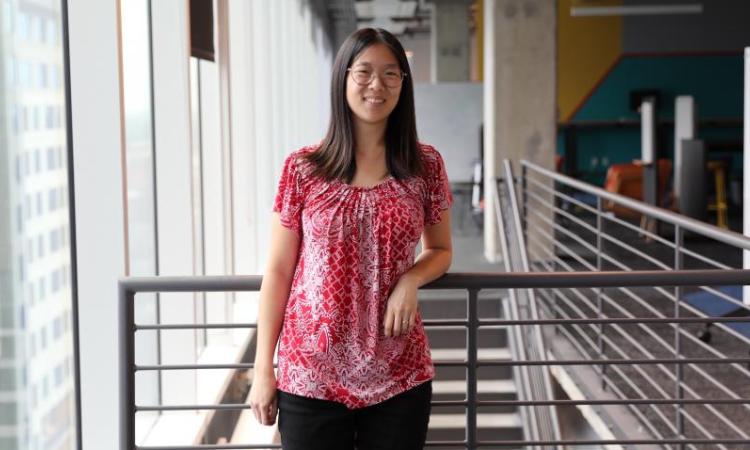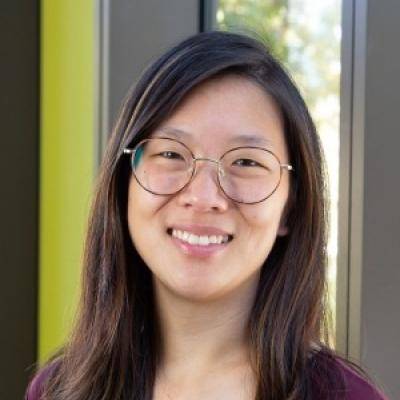Early Career Engineers Share and Learn About Cutting-Edge Research Developments
AE Assistant Professor Elizabeth Qian has been invited to participate in the National Academy of Engineering’s (NAE) Grainger Foundation Frontiers of Engineering 2023 Symposium scheduled for September 10-13, at the University of Colorado. AE’s Interim Chair and Professor, Tim Lieuwen, serves as the Symposium’s organizing committee chair and spearheads the cross-disciplinary event.
The invitation to this year’s event was extended to 81 outstanding early-career engineers from academia, government, and industry, and fellow engineers or organizations nominated participants. Other College of Engineering attendees include ISyE Professor Turgay Ayer, who will be a guest speaker, and MSE Assistant Professor Juan-Pablo Correa-Baena.
Qian and the other participants will exchange ideas, innovations, and the latest scientific techniques to foster multidisciplinary collaboration. The symposium will focus on four main discussion areas: engineered quantum systems; mining and mineral resource production; resilience and security in the information ecosystem; and complex systems in the context of health care.
“My research is at the intersection of aerospace engineering, applied math, and computer science,” Qian explained.
Qian and her team develop new mathematical tools and computational algorithms to make better engineering decisions faster. These decisions can be related to design questions, like what shape to make an airfoil, or how to 3D print materials, as well as operational and control decisions, like what control inputs to give a robot. Computational simulations of systems help engineers make more informed decisions by predicting the system's behavior with different design controls.
When it comes to computation models, sometimes less is more. Much of her research focuses on developing methods for model reduction, which identify a limited number of important variables that can be simulated without a supercomputer. One highly successful study she conducted, Reduced operator inference for nonlinear partial differential equations, targeted reducing simulation time for complex physical systems. In this study, the team considered a rocket combustor simulation. Originally, that simulation had over 18 million variables, requiring tens of thousands of CPU hours to complete. This simulation was expensive, but Qian and her team developed a machine learning algorithm informed by the system's physics. Their understanding of the governing equations helped them create a model with about 100 variables that can run on a laptop.
“The biggest challenge is capturing all of the relevant system physics. The more complicated the system, the harder it is,” Qian shared.
Qian holds a joint appointment as an Assistant Professor in the School of Aerospace Engineering and the School of Computational Science and Engineering. She teaches AE 4803: Numerical Analysis and Algorithms/AE 8803 Introduction to Numerical Methods and plans to introduce a new graduate course on efficient surrogate modeling, including machine learning and model reduction, in Spring 2024.
Related Stories

Scientist Presents Out of this World Research at International Conference

Four Georgia Tech Faculty Selected to Participate in NAE's 2021 US Frontiers of Engineering Symposium
